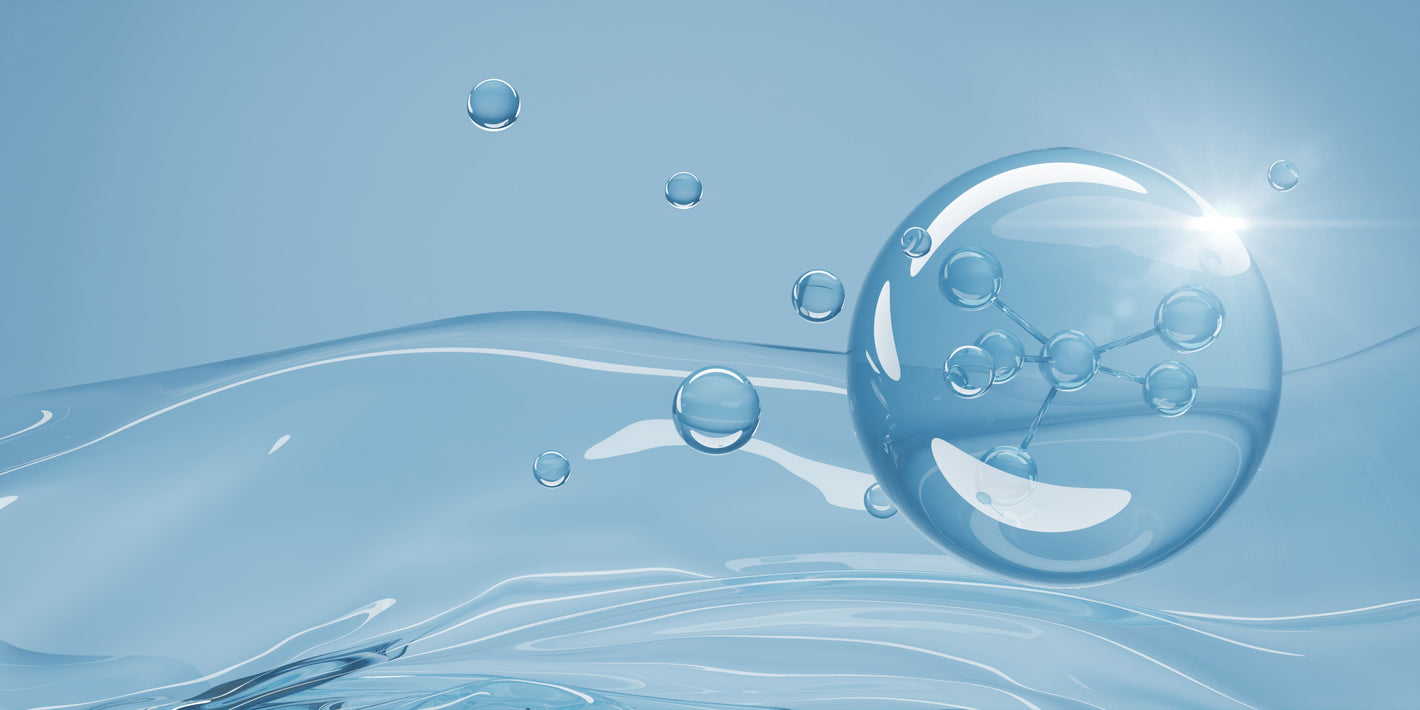
The Consequences of Insufficient Astaxanthin in Cellular Protection
Astaxanthin—Nature's Cellular Guardian
Astaxanthin, a carotenoid found in a variety of organisms such as microalgae, plankton, and certain seafood, has received increasing attention for its impressive antioxidative properties. Often referred to as 'Nature's Cellular Guardian,' astaxanthin is vital in protecting cells from various forms of stress and damage. This article aims to provide a comprehensive analysis of the critical role astaxanthin plays in cellular defence mechanisms, the repercussions of its insufficiency, and its broader implications on health and longevity.
Compared to other antioxidants like vitamin C and E, astaxanthin exhibits exceptional effectiveness. Its unique molecular structure allows it to integrate into cellular membranes, offering protection from both the interior and exterior of cells. This ubiquitous presence enables it to neutralise harmful reactive species, thus contributing significantly to cellular health.
Moreover, astaxanthin has shown promise in combatting a myriad of cellular stressors. From the inhibition of inflammatory cytokines to the shielding of cellular DNA, its protective scope is wide-reaching. However, the insufficient intake of this crucial antioxidant may have detrimental consequences on cellular function and, subsequently, overall health.
It's important to note that while astaxanthin supplements are readily available, not all are created equal. Differences in source, extraction methods, and concentrations can impact their effectiveness. Consumers must be cautious in making well-informed decisions when incorporating astaxanthin into their health regimens.
Oxidative Stress Unleashed: Astaxanthin's Role in Counteracting Damage
Oxidative stress occurs when there is an imbalance between free radicals—unstable molecules with unpaired electrons—and antioxidants. This discrepancy leads to cell and tissue damage. Astaxanthin serves as a powerful neutraliser of these harmful molecules, effectively tipping the scales back in favour of cellular health.
In the cellular landscape, free radicals are like ticking time bombs. They react easily with various cellular structures, causing harm that can disrupt cellular functions. A significant source of these free radicals is external pollutants, such as smoke and radiation, as well as internal processes like metabolic reactions.
Astaxanthin, with its antioxidative capabilities, acts as a scavenger for these free radicals. It neutralises them, preventing cellular damage and maintaining the integrity of essential cellular structures like proteins, lipids, and even DNA. Unlike some other antioxidants, astaxanthin never becomes a pro-oxidant, meaning it doesn't cause oxidative stress itself—a substantial advantage in cellular protection.
However, it's crucial to consider the dosage and bioavailability of astaxanthin. Overconsumption of antioxidants can disrupt the body's natural redox balance, leading to unintended health complications. Also, natural astaxanthin from dietary sources may have higher bioavailability than synthetic variants, which is important for maximal efficacy
Cellular Antioxidant Defence: Scavenging Harmful Free Radicals
Beyond its action against individual free radicals, astaxanthin contributes to the cellular antioxidant defence system. This defence mechanism is complex, involving various antioxidants and enzymes that work synergistically to maintain cellular health.
Astaxanthin stands out for its ability to work in both aqueous and lipid environments within the cell. This flexibility allows it to safeguard multiple cellular components simultaneously. It protects lipid bilayers, proteins, and DNA from oxidative stress, thereby offering a multi-faceted line of defence.
Another noteworthy aspect is the 'antioxidant recycling' phenomenon. Astaxanthin has shown potential in regenerating other antioxidants that have been depleted, such as vitamin C and E. This action amplifies the body's overall antioxidant defences, making it a highly effective component of the cellular antioxidant system.
The complexity of cellular biochemistry means that while astaxanthin is potent, it is not a panacea. Many other factors, such as lifestyle choices, exposure to pollutants, and genetic predispositions, also play a role in oxidative stress and cellular damage.
Mitochondrial Resilience: A Key Factor in Cellular Vitality
Mitochondria, often termed the "powerhouses" of cells, play a pivotal role in energy production. Astaxanthin's influence extends to maintaining the health and efficiency of these cellular engines. By protecting the lipid and protein components of the mitochondria, astaxanthin ensures that energy production remains optimal.
Mitochondrial dysfunction can be a precursor to several chronic conditions, such as cardiovascular diseases, neurodegenerative disorders, and even ageing. Astaxanthin, by shielding the mitochondria from oxidative damage, might thus contribute to averting these conditions.
However, mitochondrial protection is a complex issue. While astaxanthin has shown promise, co-factors such as Coenzyme Q10 are also essential for mitochondrial function. Combining multiple agents could offer a more comprehensive protection strategy, albeit at the cost of increased complexity and potential for interactions between compounds.
Inflammation's Toll on Cells: Insufficient Astaxanthin and Amplified Damage
Inflammation is an essential part of the immune response, but chronic inflammation can be damaging. Astaxanthin has anti-inflammatory properties, which mitigate the damaging effects of inflammation at the cellular level.
Astaxanthin modulates the activity of NF-κB, a protein complex that controls the transcription of DNA, thereby affecting the production of pro-inflammatory cytokines. This makes astaxanthin a critical player in reducing inflammation and its damaging effects on cells.
However, the absence or insufficiency of astaxanthin could exacerbate the harmful effects of chronic inflammation, contributing to conditions like arthritis, cardiovascular diseases, and even cancer. Hence, astaxanthin's role is crucial, but balancing its intake with other anti-inflammatory agents requires careful consideration.
DNA Protection and Repair: Shielding the Blueprint of Life
Astaxanthin has also demonstrated potential in protecting DNA from damage and aiding in repair mechanisms. DNA is the molecular blueprint of life, and damage to it can lead to mutations and dysfunctional proteins. Astaxanthin not only protects DNA from oxidative stress but also aids in the repair of damaged DNA by facilitating the activity of repair enzymes.
Despite these benefits, it's crucial to remember that astaxanthin is not a substitute for other protective measures like wearing sunscreen or reducing exposure to harmful chemicals that can damage DNA. Integrating astaxanthin into a broader strategy for DNA protection offers the most comprehensive approach.
Sun's Harmful Effects Mitigation: Cellular Shield Against UV Damage

Sunlight, while essential for vitamin D synthesis, can cause harmful UV-induced damage to skin cells. Astaxanthin has shown promise in mitigating these effects by scavenging free radicals generated by UV exposure and reducing inflammation.
However, while astaxanthin offers some degree of protection, it cannot replace sunscreen or protective clothing. Its effects are supplementary, and one should not rely solely on astaxanthin for sun protection.
Neuroprotection and Cognitive Health: A Shield for the Mind
Astaxanthin has shown potential in neuroprotection. It safeguards neurons from oxidative stress, which is particularly significant given that the brain is highly susceptible to oxidative damage. Some studies suggest that astaxanthin may improve cognitive function and even delay the onset of neurodegenerative diseases like Alzheimer's.
However, more research is needed to fully understand its role in cognitive health. It's also crucial to note that lifestyle factors like diet, exercise, and mental stimulation are equally important in maintaining cognitive well-being. Astaxanthin, therefore, should be considered as part of a broader strategy for cognitive health, rather than a standalone solution.
Ageing and Cellular Resilience: A Wall Against Time's Toll
Ageing is a complex, multifaceted process that involves various cellular changes, including increased susceptibility to oxidative stress and inflammation. Astaxanthin's antioxidative and anti-inflammatory properties make it a noteworthy agent in possibly counteracting age-related cellular decline.
The potential of astaxanthin in enhancing cellular resilience against ageing markers like telomere shortening, DNA mutations, and mitochondrial dysfunction opens avenues for further research. This offers hope for not just extended lifespan but also a healthier, more robust 'healthspan.'
Yet, it's important to note that ageing is influenced by multiple factors, including genetics, lifestyle choices, and even psychological stress. While astaxanthin can offer cellular protection, it should be part of a broader, more holistic approach to healthy ageing.
Holistic Approach to Cellular Wellness: The Comprehensive Significance of Astaxanthin
To truly appreciate the wide-reaching benefits of astaxanthin, one needs to consider its role in a more comprehensive, holistic approach to health. From protecting the minute structures within our cells to potentially delaying the detrimental effects of ageing, astaxanthin serves as a versatile shield against various forms of cellular stress and damage.
However, achieving cellular wellness isn't just about high doses of astaxanthin. It requires a balanced diet, a lifestyle that minimises exposure to oxidative stressors like pollutants and radiation, and an approach that considers other antioxidants and nutrients. It also involves ongoing scientific research to fully understand astaxanthin's mechanisms, optimal dosages, and long-term effects.
Summary
Astaxanthin's Antioxidant Power:- Astaxanthin surpasses traditional antioxidants like vitamins C and E in protecting cells from stress. However, its effectiveness varies based on supplement quality and intake levels.
- This carotenoid neutralises harmful free radicals, safeguarding cellular proteins, lipids, and DNA. Proper dosage and bioavailability are crucial for its optimal function.
- Astaxanthin operates in various cellular environments, offering broad protection. It also helps regenerate other antioxidants, though it's not a standalone solution for oxidative stress.
- By protecting mitochondrial components, astaxanthin ensures efficient energy production. It's part of a complex system requiring a balanced approach with other co-factors.
- Astaxanthin reduces inflammation by modulating NF-κB activity. Insufficient levels might exacerbate chronic inflammation-related conditions.
- It shields DNA from oxidative damage and aids in repair, but should be complemented with other protective health measures.
- Astaxanthin helps reduce UV-induced skin damage but is not a substitute for traditional sun protection methods.
- Potential benefits in neuroprotection and cognitive function improvement are noted, but a holistic approach including lifestyle factors is essential.
- Its antioxidative and anti-inflammatory properties may help counteract aging-related cellular decline, but aging is a multifactorial process.
- Astaxanthin is part of a comprehensive health strategy, requiring a balanced diet, healthy lifestyle, and consideration of various antioxidants and nutrients.






